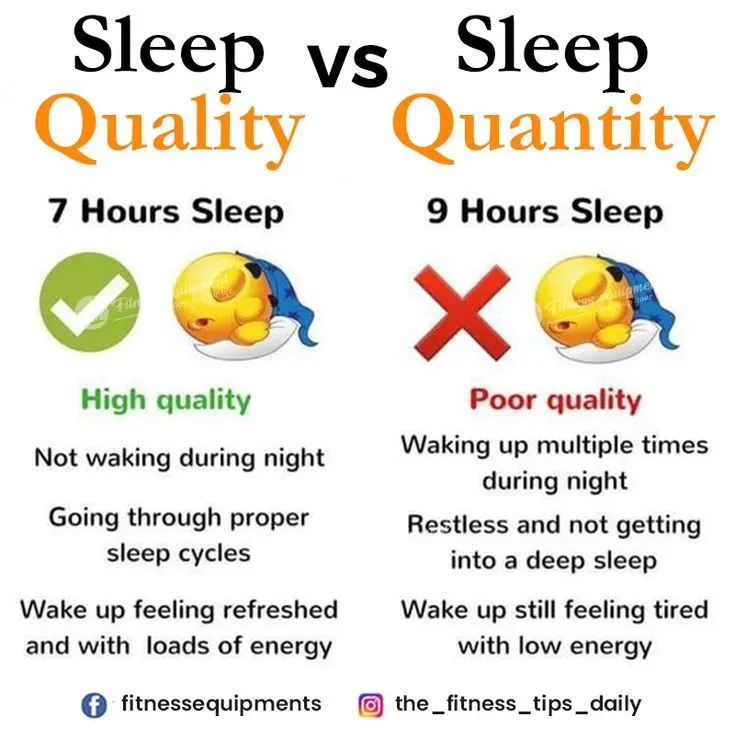Quality Sleep is not a luxury; it is a cornerstone of sleep and health. When we honor the body’s natural cycles and support the circadian rhythm, restorative rest boosts memory, mood, energy, and resilience. Practical strategies for sleep hygiene and routines show how to improve sleep quality. Restorative rest supports immune function, mood stability, and daytime performance. The benefits of quality sleep are well documented, and this article explains why it matters for lasting health.
A closer look at restful nights reveals how consistent routines support the body’s natural timing system. Viewed through the lens of proper nightly rest, ideas like sleep depth, downtime, and circadian alignment illuminate why daytime energy matters. Practical steps—stable bedtimes, dim lighting, and a calm pre-sleep routine—foster restorative sleep cycles and better alertness. Understanding these related concepts helps you adopt habits that boost overall wellness and resilience.
Quality Sleep and Circadian Rhythm: How to Improve Sleep Quality for Better Health
Quality Sleep is not a luxury; it is a cornerstone of health. By honoring the body’s circadian rhythm and ensuring restorative rest, you support immune function, memory processing, mood stability, energy, and resilience. This connection captures the essence of sleep and health, and highlights the broad benefits of quality sleep that ripple into daily performance and long-term wellness.
Achieving better sleep quality starts with practical steps rooted in sleep hygiene and circadian-aligned routines. Maintain a consistent sleep schedule, optimize your bedroom environment, and reduce evening light exposure to cue the body toward restorative stages. Understanding how to improve sleep quality also involves daytime light exposure, regular physical activity, and stress management to sustain seamless transitions through the sleep cycle.
Sleep Hygiene: Daily Habits That Support Long-Term Health and Quality Sleep
Good sleep hygiene forms the foundation of sustainable rest. From a cool, dark, quiet bedroom to a calming pre-sleep routine, these daily practices reduce awakenings and support the circadian rhythm. By embracing sleep hygiene, you can amplify the benefits of quality sleep and reinforce the link between sleep and health.
Beyond the bedroom, daily routines matter: morning light exposure, regular physical activity, mindful caffeine timing, and stress management all help maintain daytime alertness while reinforcing how to improve sleep quality. These habits enable you to experience the enduring benefits of quality sleep across life stages and contribute to overall wellness.
Frequently Asked Questions
What is the connection between Quality Sleep and sleep and health, and what role does circadian rhythm play?
Quality Sleep is a cornerstone of health. Aligning with the circadian rhythm supports immune function, mood, memory, and daytime energy, while poor sleep can contribute to weight gain and cognitive difficulties. To improve Quality Sleep, maintain a consistent sleep schedule, create a cool, dark, quiet bedroom, get morning light to set your clock, and limit late-afternoon caffeine and stimulating screens (sleep hygiene and circadian rhythm).
What are the benefits of quality sleep and how can sleep hygiene and circadian rhythm strategies help improve sleep quality?
Quality Sleep offers benefits such as sharper thinking, stronger immunity, better mood, and improved metabolic health and recovery. Sleep hygiene and circadian rhythm strategies—regular bedtimes, an optimized sleep environment, minimizing blue light and stimulants, daytime activity, and stress management—help improve sleep quality. If sleep problems persist, consider medical evaluation for possible sleep disruptors like insomnia or sleep apnea.
| Aspect | Key Points |
|---|---|
| Importance | Quality Sleep is foundational to health; it supports immune memory, mood, energy, and resilience. There is a deep, bidirectional link between sleep and health: poor sleep can drive weight gain, reduced cognitive function, and higher stress, while consistently good sleep boosts daytime performance and long-term wellness. |
| Sleep biology | Sleep cycles (~90 minutes) alternate through light sleep, deep slow-wave sleep, and REM. Deep sleep restores physical health and immune function; REM supports learning and memory. The brain clears waste during sleep. The circadian rhythm (internal clock) is set by morning light and winded down by evening dimness; disruptions (irregular schedules, late screens, shift work) reduce quality and daytime function. |
| What quality sleep looks like | Quality sleep is about more than duration. Target 7–9 hours for adults; signs include fast sleep onset, staying asleep, waking without grogginess, and morning energy and focus. |
| Benefits | Cognitive performance and memory consolidation: REM aids creative thinking; deep sleep supports memory. Immune support and inflammation control. Metabolic health and weight management. Mood regulation and mental health. Physical recovery and athletic performance. |
| Strategies to cultivate quality sleep | Establish a consistent schedule; keep a cool, quiet, comfortable sleep environment; create a calming pre-sleep routine; limit caffeine after mid-afternoon and avoid alcohol near bedtime; optimize daytime habits with morning light, daytime activity, and avoiding heavy meals before bed; manage stress and anxious thoughts; address sleep disruptors and seek help if needed (snoring, apnea, insomnia). |
| Life stages | Children/teens may need more sleep; pregnant individuals may experience sleep changes; older adults often have lighter sleep but still need quality sleep. Adapt routines while preserving a steady circadian rhythm. |
| Myths | Sleep duration alone does not guarantee quality. Some people rest on six hours; others need nine. Weekend sleep debt is real; consistency matters. Alcohol may help you fall asleep but disrupts deep sleep. Quick fixes are less effective than sustainable sleep habits. |
| Practical plan (4 weeks) | Week 1: Set a fixed wake time; cut caffeine after 2 PM; start a dimly lit wind-down routine 60 minutes before bed. Week 2: Improve the sleep environment (mattress, blackout curtains, white noise). Week 3: Stabilize weekend routines; avoid late-night screens with night mode/blue light filters. Week 4: Review progress and address barriers; consult a clinician for suspected sleep disorders if issues persist. |
Summary
Quality Sleep is a health superpower that enhances memory, mood, immunity, and daily performance. By aligning your habits with your circadian rhythm and prioritizing a consistent sleep routine, you can unlock remarkable benefits for longevity and vitality. Sleep is not passive downtime but an active investment in your health. With patience and persistence, Quality Sleep can transform how you feel today and how you function tomorrow.



